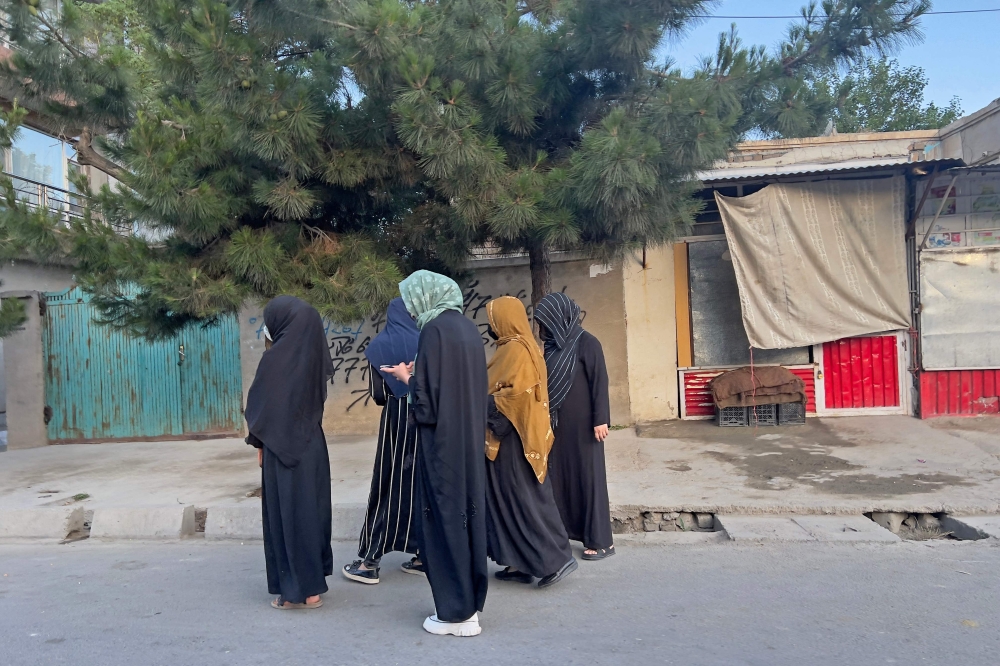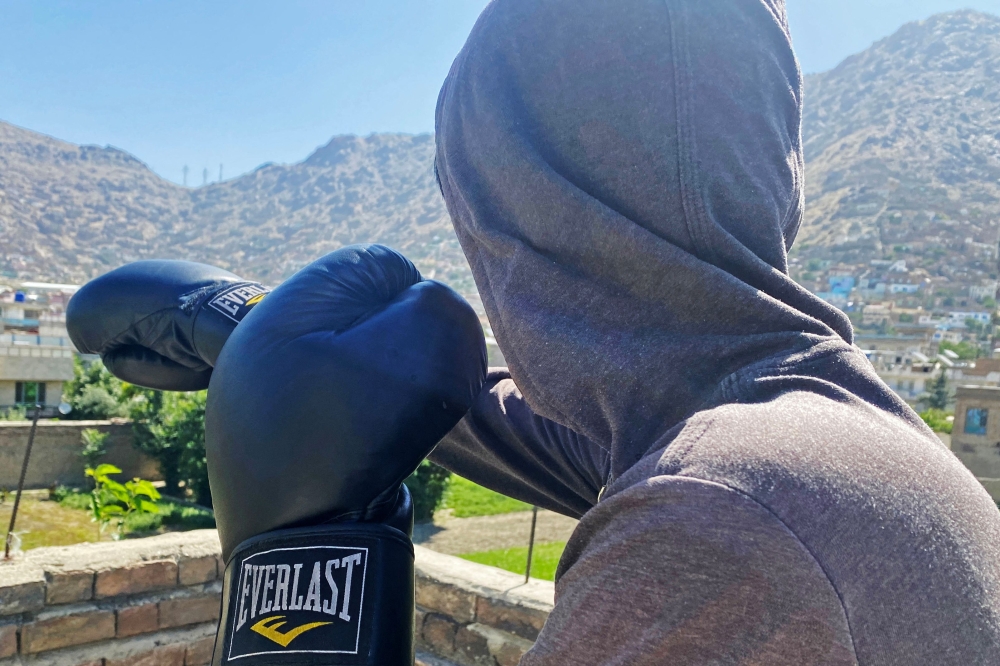KABUL, Sept. 16 — After many morning prayers, 25-year-old Sana joins several women from her neighborhood in the Afghan capital, Kabul, for a walk along the main road before it fills with traffic, never too far or too close to the Taliban. checkpoints.
They secretly exercise not for competition, but for health and peace of mind in a country where the Taliban government has stopped women from playing sports.
“We can’t go near the Taliban checkpoint because they say, ‘Why are you out of the house so early? where are you going Why do you want to exercise, you don’t want to, don’t’ ” Sana, whose name has been changed — along with all the women interviewed by AFP — for fear of reprisal.
Taliban authorities have implemented a strict interpretation of Islamic law, with women bearing the brunt of restrictions the United Nations has labeled “gender discrimination.”
In November 2022, the Ministry of Virtue Promotion and Hazard Prevention announced that women were banned from parks and gymnasiums on the grounds that they did not follow a dress code.
While gyms have previously offered slots for women, some informal women-only fitness clubs still exist, which are rare and low-profile.
Sana and her colleague Latifah, a middle-aged woman, used to walk in the city’s parks covered with large trees.
Latifah said the last time she visited the park near her home, not long after they were permanently closed to women, she was forced out, crying again as she recalled the incident.
“The doctor told me to exercise more because I have high cholesterol and fatty liver, but the Taliban don’t allow us to exercise or go to the gym or walk outside (freely),” she said.
Sana aspires to be a yoga teacher and guides the group through gentle air exercises and meditation after their walk.
“Take a deep breath,” Sana says softly, pressing her thumb and forefinger against her knees in the yellow sunlight, away from prying eyes on a protected balcony.

In this photo taken on June 26, 2024, Afghan women walk along an early morning street in Kabul. – AFP picture
Boxing in secret
Forced out of their gym, Rayan and several other female boxers instead move to a friend’s house to use what little equipment they have in a society that was already hostile to women in the sport, but has now become brutal.
“We trained less, but we never stopped,” said Ryan, 19, watching a video on her phone, her fists flying with jabs and hooks — a bitter reminder of the passionate boxer she once was.
Taking off her headscarf in a private park in the Kabul heat, Bahar, a fellow former competitive boxer, said the situation left her and other Afghan women stressed, exhausted and humiliated.
“But when we’re boxing, it pushes it all away for a moment. Even if we only practice for a few minutes, it makes a big difference,” said the 20-year-old, her arms still stained with henna from her recent wedding.
Her husband doesn’t know she still boxes.
Many female athletes fled Afghanistan after the Taliban took over.
Some still compete on the international stage, including the recent Paris Olympics, but they come from outside the country and under the flag of the ousted republic.
Taliban authorities are not officially recognized by any state.
“Girls’ sports have been stopped in Afghanistan. How do girls join the national team when they are not coaching the sport? said Atal Mashwani, spokesman for the Taliban government’s sports directorate.

Afghan women secretly exercise not for competition, but for health and peace of mind in a country where the Taliban government has banned women from playing sports. – AFP picture
‘Give them hope’
Banafsha, a black belt in the Chinese martial art of wushu, expressed mixed feelings echoed by others about the Afghan women’s Olympic participation.
The Afghan team in Paris included three male and three female players, while Afghan women also competed in the refugee team.
“It made me happy that women still didn’t give up, committed to their goals,” she said.
“But I was also sad. Why can’t they go to the Olympics from within their country?”
When the Taliban came to power, the former national contestant burned her uniform.
These days she can barely leave the house, feels “hopeless and heartbroken” and struggles to motivate herself to exercise.
Hasina Hussain Zada, who works at Free to Run, an organization that focuses on empowering women through sports, said that while there are a range of online exercise videos and classes, they cannot replace individual training, being in a group or exercising outdoors. .
“We tell our participants to think of it like a Covid time,” said the 28-year-old, who fled to Canada after the Taliban took over.
She has worked with the nonprofit since 2018, and it still supports women in Afghanistan with indoor exercise — but “carefully and confidentially.”
“You don’t have to think about the Taliban, the laws… think about it like during Covid when everyone is doing their exercises at home,” she said.
“We’re trying to change their mindset, we’re trying to give them hope.” – AFP
#Banned #sports #Afghan #women #turn #secret #exercise #relief